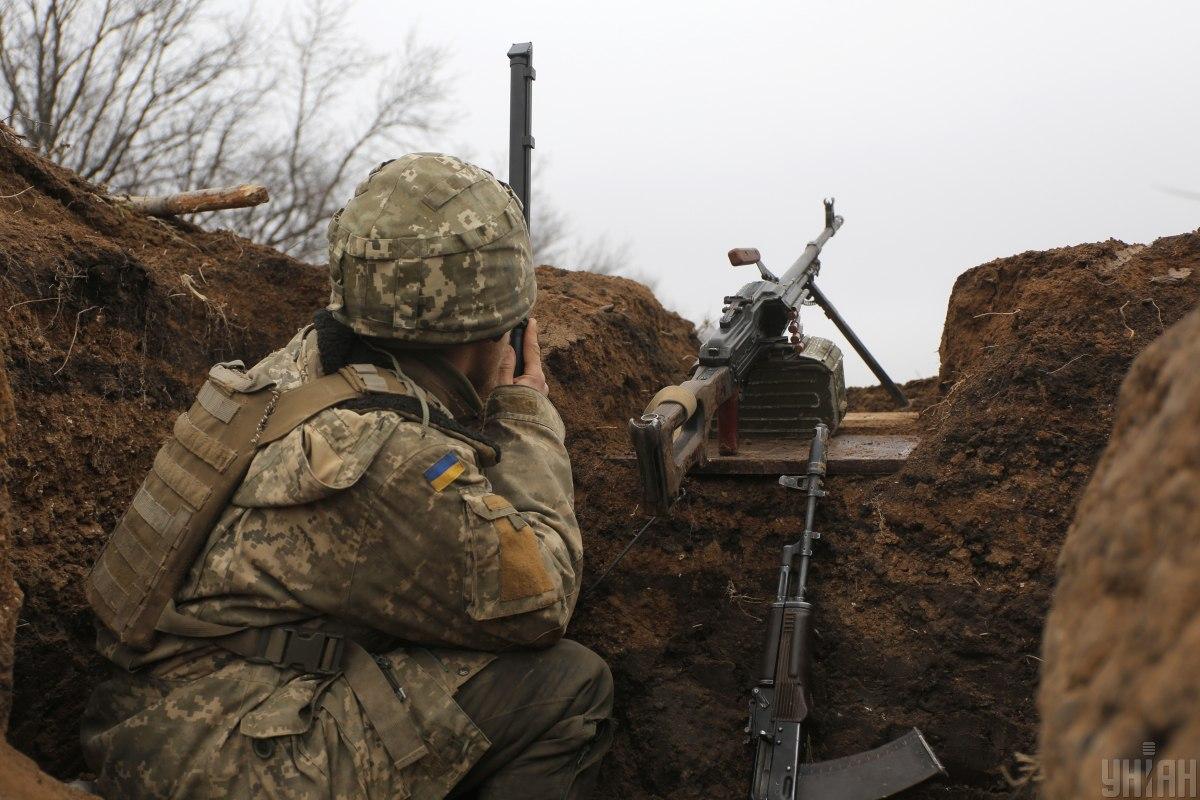
Spokesman for the Ukrainian delegation to the Trilateral Contact Group (TCG) Oleksiy Arestovych has said today there are no formal or informal grounds for introducing the so-called "Plan B" to resolve the situation in Donbas.
"We are preparing for various options. So far, Plan B is off the table, but the position is very clear – the basis of settlement is politico-diplomatic... We preserve Ukraine's reputation as a country that fulfills international agreements," he said during a briefing entitled "The anniversary of the Normandy summit in Paris: what has been achieved in a year?", an UNIAN correspondent reported.
Read alsoKravchuk explains proposal to disconnect Russia from SWIFTAt the same time, the guarantee of settlement is comprehensive development of the Armed Forces of Ukraine and the entire sector of national security and defense, and special services, the spokesman said. He noted the importance of joint international military drills with Ukraine's participation.
Arestovych has noted progress, albeit a "very, very, very slow one," on the path to peace.
The most important achievement is that "Russia is still maintaining the peace process," he said.
"In fact, we may state things are going according to 'Plan A,' that there are no formal and informal grounds for shifting to 'Plan B' yet."
"This week they [the Russian side] confirmed their desire to hold a meeting at the level of political advisers. On December 15, we will hold a TCG meeting, the last one this year," Arestovych said, adding there is very slow progress in the issue of checkpoints' operation on the line of contact.
Also, he said negotiations were "slowest" on "the most painful issue, which is the release of held persons."
Arestovych notes Russia is trying to "disregard the entire set of agreements that have been signed since the summer of 2014. They insist only on the complex of Minsk steps, which was signed on February 12, 2015, since, in their opinion, it was consecrated by the UN" and "became part of international law."
According to him, Russia "is constantly trying to impose on us the need for direct dialogue with organizations that are very similar to terrorist ones. We call them TORDLO (temporarily occupied areas of Donetsk and Luhansk regions of Ukraine)."
"Have the Paris agreements (of December 9, 2019) been fulfilled? Partially fulfilled, partially not," Arestovych said.
Read also"No substance" for Zelensky-Putin meeting yet, Kremlin spox saysHe is convinced the biggest achievement is the relative preservation of ceasefire, which has been in effect since July 27 this year.
"During this time, there have been 5.5 times fewer shellings and 10 to 14 times fewer losses among our military if we count combat and non-combat losses," the official added.
Normandy Four summit: Background
Ukrainian President Volodymyr Zelensky, his Russian counterpart Vladimir Putin, French President Emmanuel Macron, and German Chancellor Angela Merkel met in Paris on December 9, 2019, to discuss ways to end the war in Donbas.
They reaffirmed their commitment to the full and comprehensive ceasefire regime by the end of 2019 and supported the arrangement within the Trilateral Contact Group in Minsk on the disengagement of troops and weapons at three new sites in eastern Ukraine by the end of March 2020.
The leaders encouraged the TCG to promote the release and exchange of held persons by the end of the year on an "all for all" basis, starting with "all identified for all identified persons."
The parties expressed their interest in reaching agreements within the Normandy format and the TCG on all legal aspects of the law on the special order of local self-government (on the special status) of certain areas in Donetsk and Luhansk regions – as specified in the Comprehensive Package of Measures for the Implementation of Minsk agreements of 2015 – to ensure its continued application.

